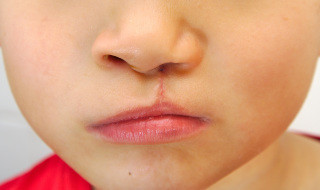
Many people with cleft lip and/or palate condition are unaware that it is a hereditary condition.
A new study, titled ‘Starting a Family: The Experience of Parents With Cleft Lip and/or Palate’ and published in The Cleft Palate-Craniofacial Journal, aims to identify the causes of cleft lips and the best treatments for cleft lips has shown that people with cleft lip and/or palate condition are unaware of the risk of passing it onto their children.
‘The most surprising finding was that none of the parents who took part had a clear understanding of recurrence risks, despite being born with a cleft themselves,’ Nicola Stock, author of the research, said.
‘Accurate information and access to genetic counselling is therefore vital for young people born with heritable conditions such as cleft lip/palate, who are prospective parents.
‘In addition, research into the genetic and environmental causes of conditions such as cleft are crucial for education and prevention.’
Cleft lip and/or palate condition
Every three minutes someone is born with cleft lip and/or palate, making it one of the most common congenital conditions in the world.
In western society, surgery is usually performed within the first year of the child’s life, dental care, speech therapy, physiological care and further oral surgeries are ongoing until around 18 years old.
The authors of the study believe that more support is needed for young adults with a cleft palate condition after they reach the age of 18, especially when they are deciding to start families; they should be fully informed of the hereditary impact of their condition.


